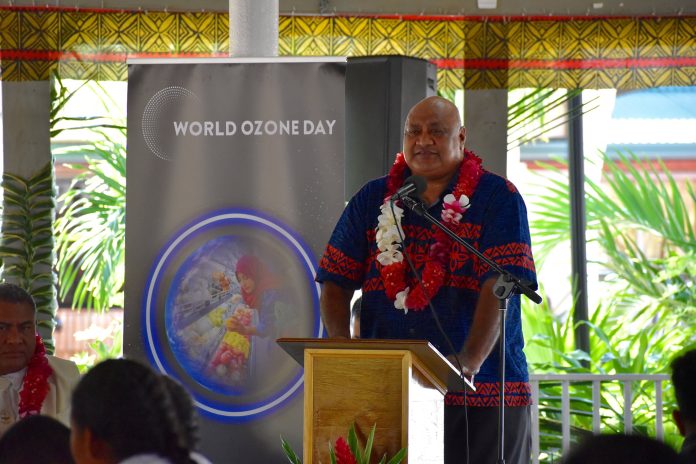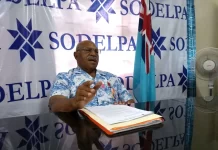Climate change is not something that will occur in the future. For people living in the Pacific, it is something they are facing already.
The reminder came from the Director General of the Secretariat of the Pacific Regional Environment Programme (SPREP), Sefanaia Nawadra during the Pacific Islands Climate Change Forum (PICCF) last week.
The three-day event was designed to present objective, user-relevant information about the current and future climate in the Pacific. It was attended by more than 100 participants joining virtually from around the Pacific region and the world.
Speaking during the official opening of the PICCF, Nawadra highlighted the need for climate science and information to inform policies and decision-making.
“Our leaders have consistently identified climate change as an existential threat for us in the region, with the recent Kainaki II Declaration in Tuvalu emphasising the need for climate change science and research to inform what we to do address climate change – whether globally in negotiations or at the national level,” Nawadra said.
“I would like to emphasise the need to keep our Members informed with the current data and science, which will not only help them negotiate better at international meetings and during conferences of the parties, but will also help inform what needs to be done in-country, such as planning of responses to challenges we are already facing.”
Nawadra also stated the importance of presenting the data and science in formats that can be easily understood and used by those who need it for decision-making. “The science needs to be communicated so it is able to be understood and used,” he said.
PICCF is being held as a special follow-up to the tenth session of the Pacific Islands Climate Outlook Forum (PICOF-10) which took place the day before and will also review actions currently being undertaken by agencies, organisations and institutions to reduce climate-related risks and support sustainable development in the Pacific.
It is catered towards representatives of Pacific National Meteorological and Hydrological Services (NMHSs), national governments, policymakers and domain experts, non-governmental organisations and universities, consultants and private sectors, donors and multilateral donor partners, community groups, knowledge brokers and other relative sectors.
The first day of the PICCF saw the official launch of the Pacific Island Climate Change Monitor which describes historical change in climate in the Pacific region, drawing from the latest meteorological and oceanographic data, information and analyses. The Director General congratulated the Pacific Islands Climate Services Panel, which is an expert panel of the Pacific Meteorological Council, and the Pacific Regional Climate Centre Network for their work in completing this important study.
“The information contained in the Pacific Climate Monitor, which includes trends in physical, biological, chemical and ecological observations of our changing climate, will help us stocktake where we are and what we need to do to go forth and continue to address this existential crisis of climate change,” said Nawadra.
The PICCF is being co-organised by SPREP and U.S National Oceanic and Atmospheric Administration (NOAA), the University of Hawaii, with technical support from the Australian Bureau of Meteorology (BOM), National Institute of Water and Atmospheric Research (NIWA), APEC Climate Centre (APCC), Meteo-France, Commonwealth Scientific and Industrial Research Organisation (CSIRO) and Pacific Community (SPC) as members of the Pacific RCC Network for Long-Range Forecasting, in partnership with the PICS Panel.
SOURCE: SPREP/PACNEWS














